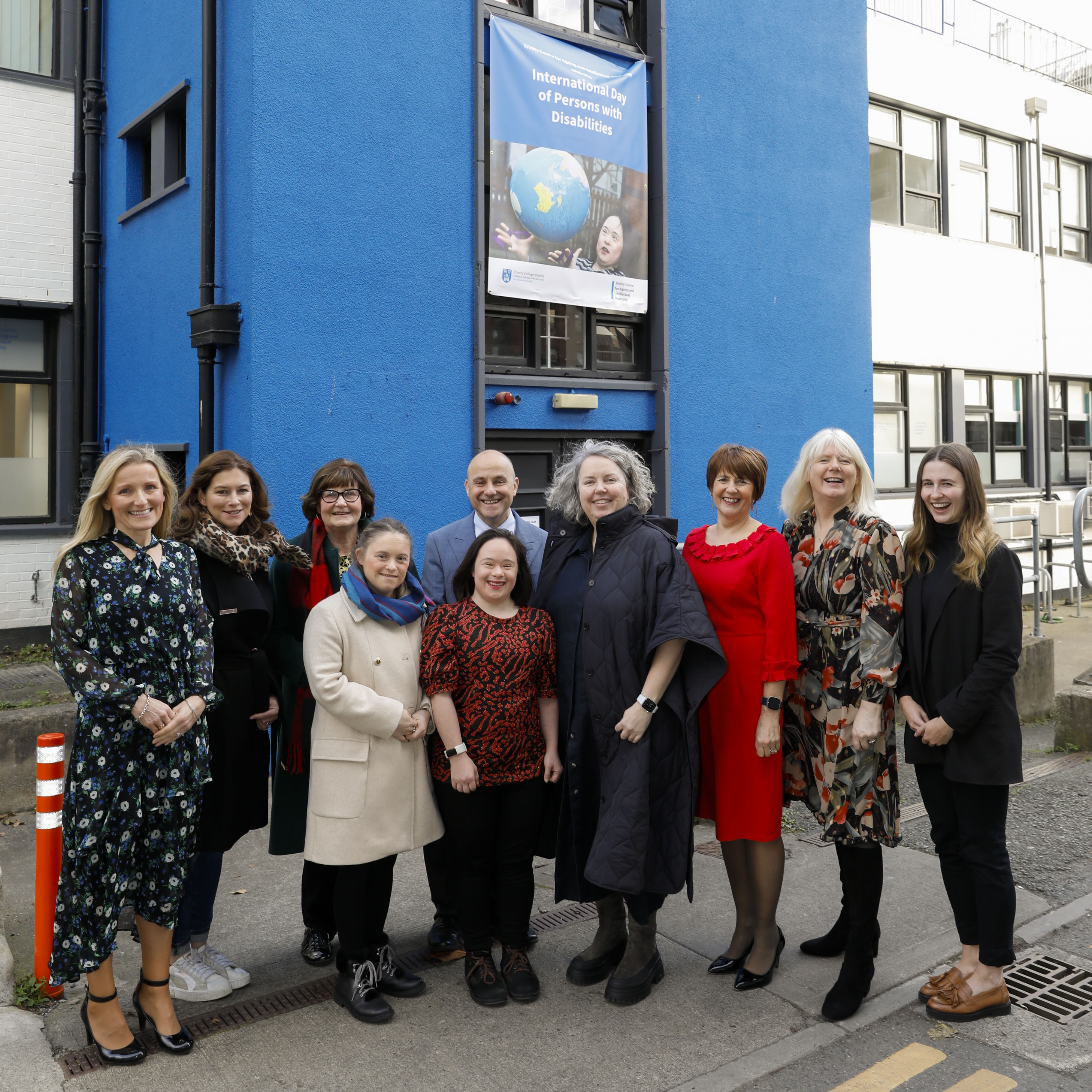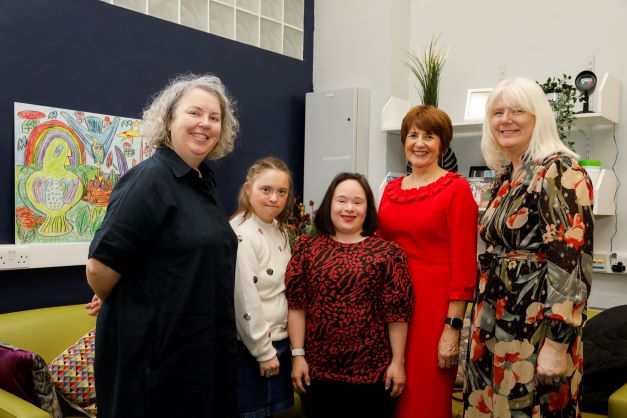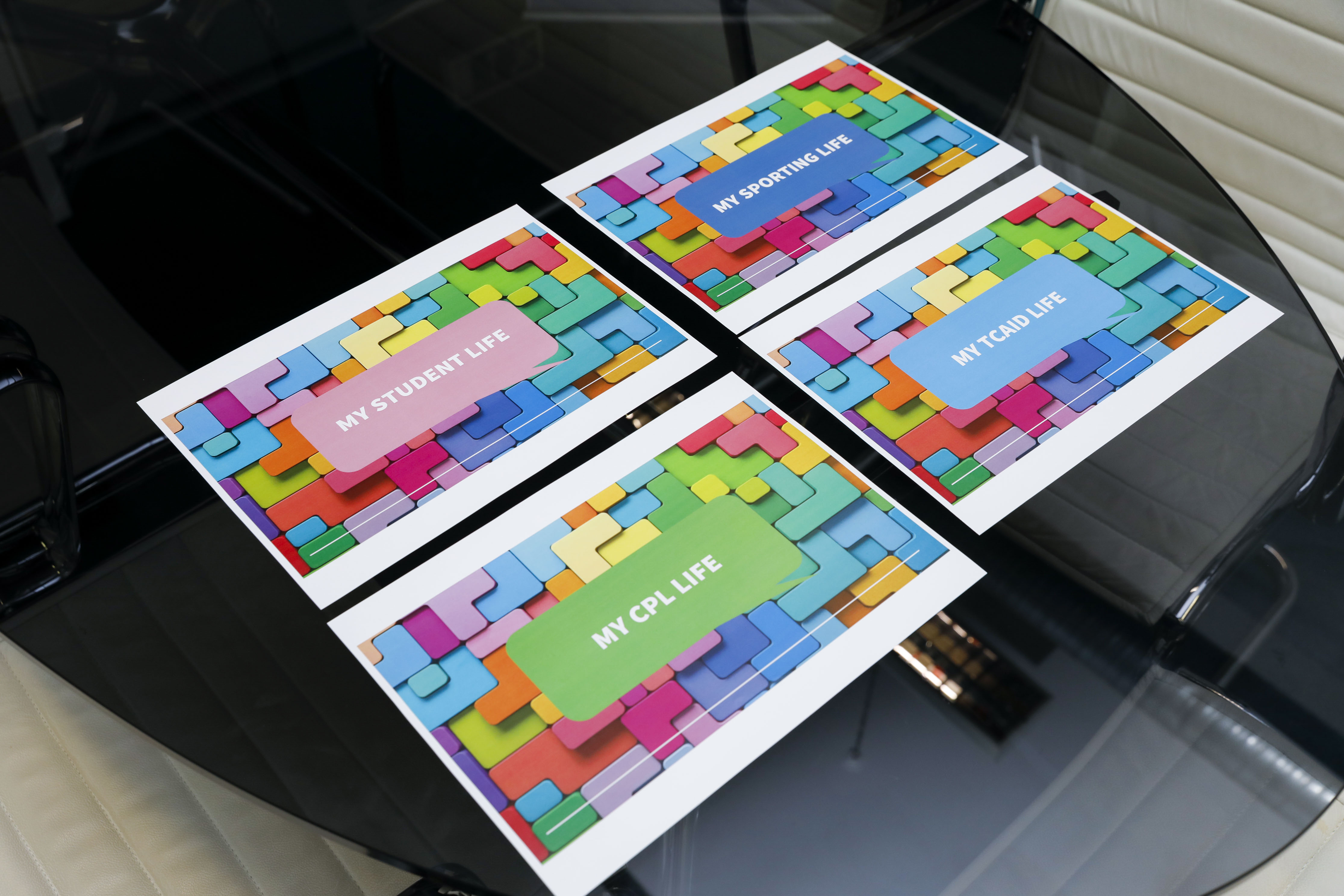In Conversation with the Provost: promoting abilities and inclusion on International Day of Persons with Disabilities
In Conversation with the Provost: promoting abilities and inclusion on International Day of Persons with Disabilities
International Day of Persons with Disabilities falls on the 3rd of December each year, with the aim of promoting empowerment, and helping to create real opportunities for people with disabilities. For 2022, the overarching theme is around innovation and transformative solutions for inclusive development. TCAID has proactively driven innovation and transformative solutions for inclusive development of individuals with an intellectual disability. To talk about the impact of this and to mark #IDPWD2022, two very important colleagues, Ms Mei Lin Yap and Ms Christina Corr, were delighted to voice their experience about what it is like to work in Trinity College Dublin and their career development.
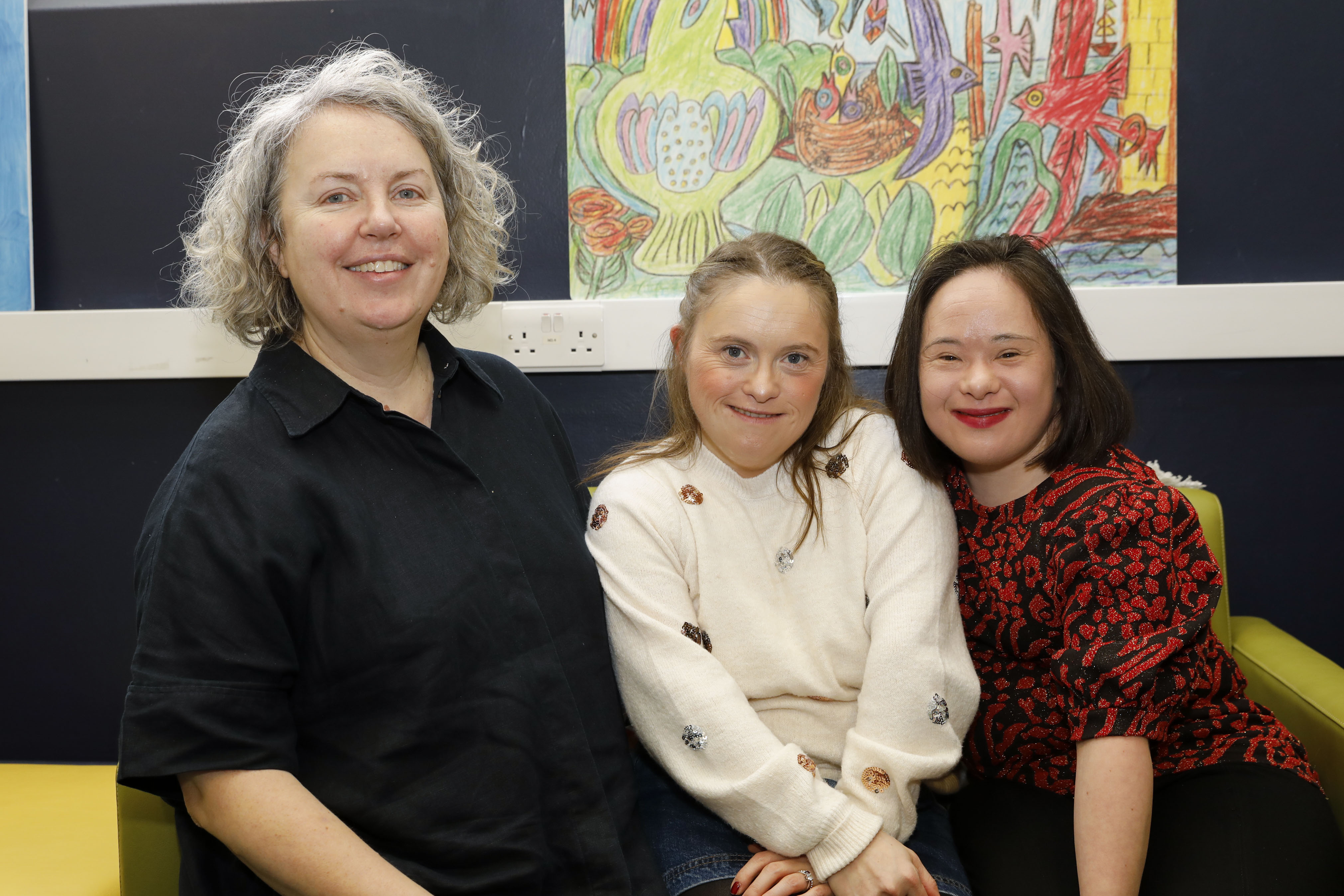
The Trinity Centre for Ageing and Intellectual Disability (TCAID) was delighted to welcome our Provost to have coffee and conversation on International Day of Persons with Disabilities. In alignment with the overarching 2022 theme for International Day of Disabilities, this event – In Conversation with the Provost - showed how innovative solutions for employment can create meaningful opportunities for individuals with far reaching impact. TCAID values diversity in the workplace, as it adds strength to the overall research team, providing opportunities, which promotes success and learning, strengthening the path of research. Work gives individuals a sense of purpose and self-worth. For many, it defines who we are and is a source of justifiable pride. The benefits of being in employment are well documented; however, unemployment is a critical issue for people with intellectual disability.
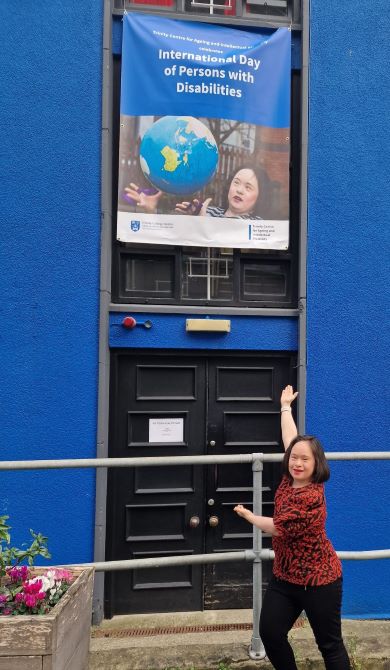 The first wave of the Intellectual Disability Supplement to the Irish Longitudinal Study on Ageing (IDS-TILDA) in 2011 found that just 6.6% of the population were in real paid employment. Additional analysis at Wave 2 in 2014 identified the same level of employment but most were engaged in other forms of activity, primarily in day services but also sheltered workshops, in education or training, and unpaid work. Around 14% were not in any form of occupation, including those who were unemployed or looking for work, unable to work due to being permanently sick or disabled, and retired. Respondents who were employed reported the highest rates of emotional or mental health compared with participants in other forms of occupation, while those not in any form of occupation had the lowest rates. The fourth wave of IDS-TILDA identified that there was an increase in real paid employment from 6.6% to 8.7%, but individuals not in any form of occupation now stood at 18.7%.
Professor Mary McCarron was awarded the inaugural HRB Impact Award in 2019, which has enabled the Trinity Centre for Ageing and Intellectual Disability to provide specific employment opportunities to people with an intellectual disability.
The first wave of the Intellectual Disability Supplement to the Irish Longitudinal Study on Ageing (IDS-TILDA) in 2011 found that just 6.6% of the population were in real paid employment. Additional analysis at Wave 2 in 2014 identified the same level of employment but most were engaged in other forms of activity, primarily in day services but also sheltered workshops, in education or training, and unpaid work. Around 14% were not in any form of occupation, including those who were unemployed or looking for work, unable to work due to being permanently sick or disabled, and retired. Respondents who were employed reported the highest rates of emotional or mental health compared with participants in other forms of occupation, while those not in any form of occupation had the lowest rates. The fourth wave of IDS-TILDA identified that there was an increase in real paid employment from 6.6% to 8.7%, but individuals not in any form of occupation now stood at 18.7%.
Professor Mary McCarron was awarded the inaugural HRB Impact Award in 2019, which has enabled the Trinity Centre for Ageing and Intellectual Disability to provide specific employment opportunities to people with an intellectual disability.
Ms Mei Lin Yap joined TCAID in 2020 as the Ambassador Liaison Officer. Her role involves advising researchers, representing TCAID at events related to the centre or PPI activity and managing PPI Panel meetings. Talking about the importance of work for her Mei Lin says “Work is important to me, as I feel I can contribute to society. As part of my role, I am involved in so many great research projects, engaging with stakeholders which is underpinned by Public & Patient Involvement (PPI). Working as part of this team makes me feel valued and making a difference on how to age well in Ireland with Intellectual Disabilities”
Ms Christina Corr joined the Trinity Centre for Ageing and Intellectual Disability Team in 2021 as a Research Assistant to the Post-Diagnostic Dementia Support Guidelines for People with an Intellectual Disability project. The Post-Diagnostic Dementia Support Guidelines for People with an Intellectual Disability project aims to increase our understanding of existing post-diagnostic dementia supports for people with intellectual disability and establish what can be done to improve these services. This will be achieved through, consultation with people with a diagnosis of dementia and intellectual disability, families and carers, experts in post-diagnostic dementia support, intellectual disability staff members, intellectual disability specialists and general population service management.
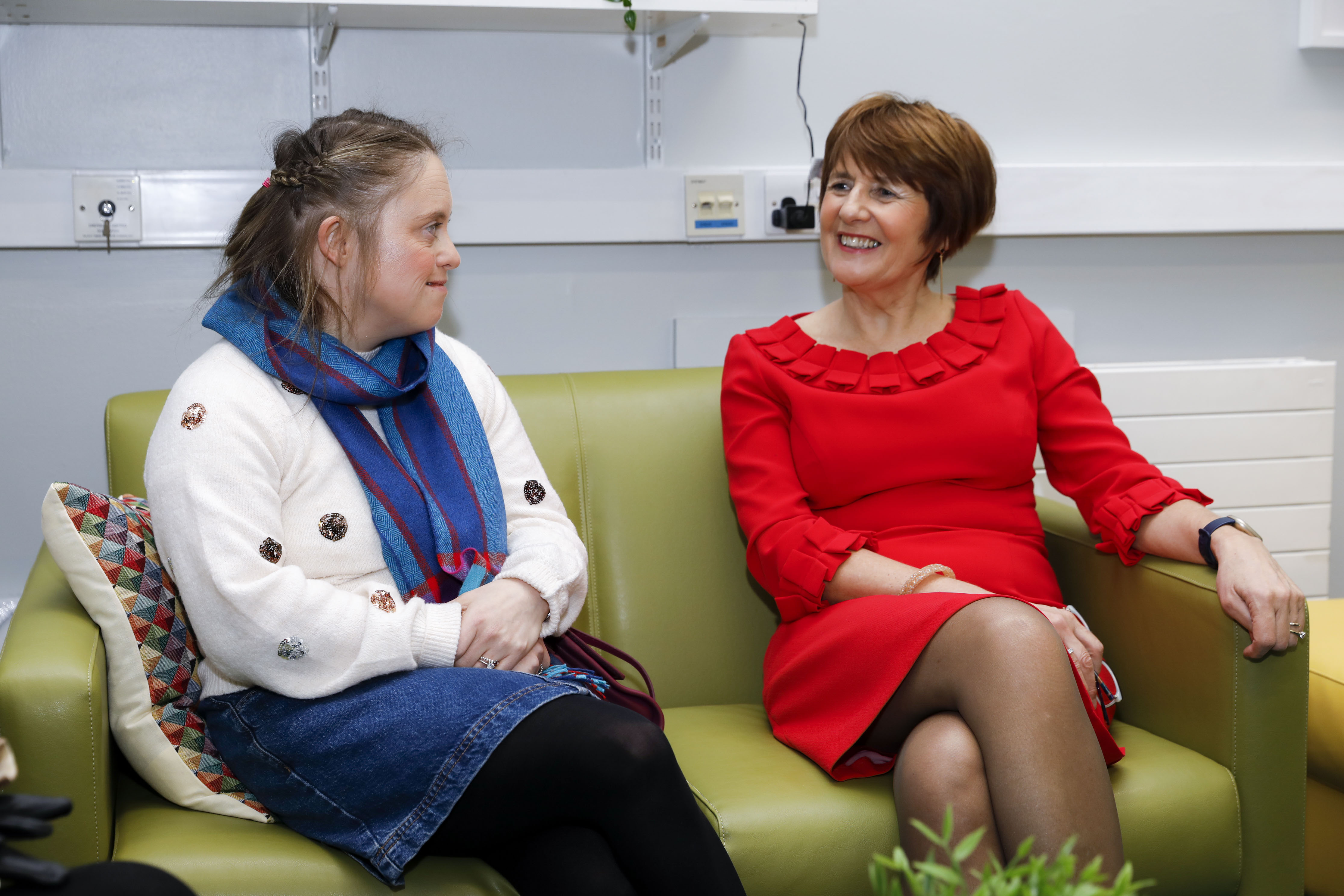
TCAID supports team members with ID with developing new knowledge and skills, new experiences and learning about new topics. For example, Christina designed an accessible version of a researcher career development framework. By doing this Christina learnt about the skills that a researcher needs, built a knowledge base of these skills and how to apply in a practical setting. Christina developed easy read material, based on the core elements within the vitae researcher development framework. The developed material was used to increase her knowledge of research methods, as well as developing her professional research skillset. Christina speaking about meaningful and practical research said “As I have experience of living with Down syndrome, I have a perspective on easy read materials that other team members would not have” The implications of Christina’s work with accessible easy read material for researchers career development will be far reaching for researchers in any educational institute in any country around the world. Christina said that she loves working in Trinity, seeing her colleagues and loves the experience of working as a researcher.
Mei Lin and Christina’s stories are exemplar of how innovative solutions for employment can create meaningful opportunities for individuals with far reaching impact not only on their roles in the workplace but also build their social network and independence. Inclusive employment in TCAID is about focusing on the abilities, empowering colleagues with ID to take advantage of opportunities, become their own agents of change and embrace their immense strengths and contribution they bring to Trinity College Dublin and broader society as a whole
